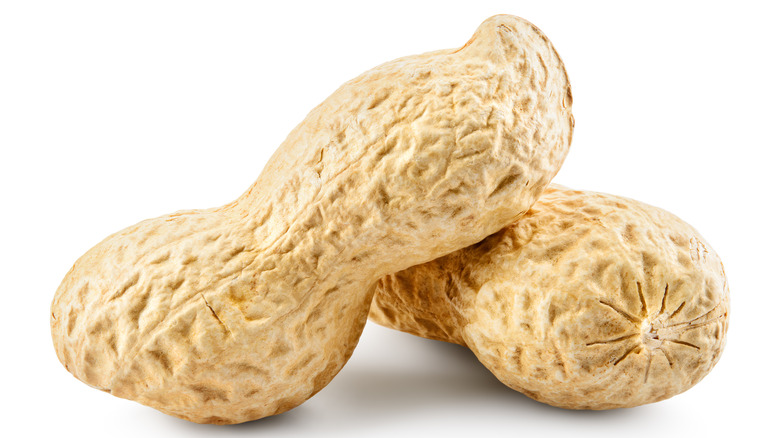
If you enjoy a bit of extra crunch when munching on nuts, you might be one of those who like eating peanuts with the shell still on. In a public announcement on social media, the National Peanut Board reached out to Twitter and Instagram users to show support for all ways of enjoying peanuts – with or without the shell. Responses varied, with one user stating, “Always have eaten with the shells on! Is there any other way?” Others were puzzled by the idea of eating peanut shells, with one user commenting, “I…didn’t know that was a thing.”
Peanuts themselves are nutrient-rich, containing antioxidants, fiber, iron, magnesium, and protein. On the other hand, peanut shells consist of 60% crude fiber, 6% crude protein, 25% cellulose, 8% water, and 1% fat. While peanuts are known to be healthy, the shell offers minimal benefits. So, should you eat the shell along with the peanut, or is it risky to do so?
The health risks of eating peanut shells

While accidentally eating a peanut shell occasionally isn’t harmful, deliberately consuming them is generally not recommended. The composition of a peanut shell is similar to cardboard or sawdust when ingested, and our digestive system cannot effectively break it down. This can result in potentially hazardous blockages and inflammation. A condition that can arise from consuming peanut shells is colitis, which involves inflammation in the colon due to damage, infection, or blood loss.
Furthermore, pesticides might be present on peanut shells, as peanuts are often treated with chemicals to prevent fungal contamination. Since the shells are not meant for consumption, farmers usually do not remove these pesticides. Additionally, fungi known as Aspergillus flavus and Aspergillus parasiticus can be found on peanut husks and are associated with stunted growth in children, reduced immunity, and have been linked to cancer development.
If you find yourself consuming large quantities of peanut shells regularly, it’s advisable to consult a doctor. Instead of a snack, peanut shells can be more effectively used as cat litter, mulch, barbecue charcoal, or in compost piles.




